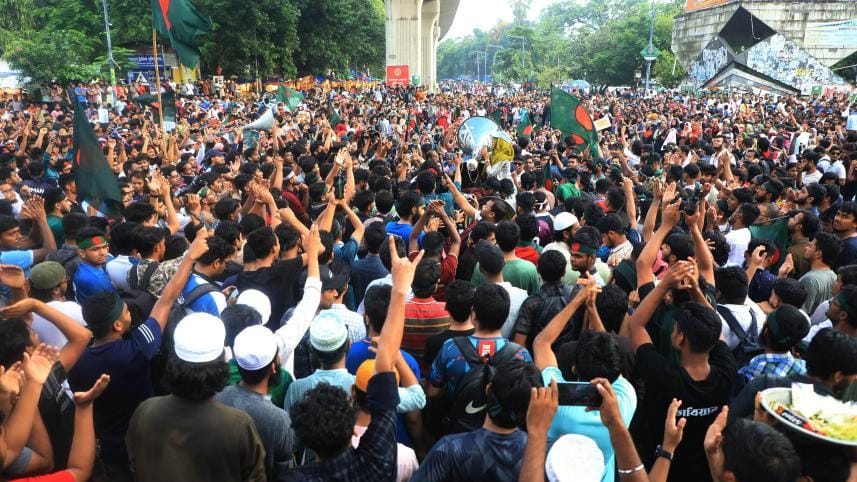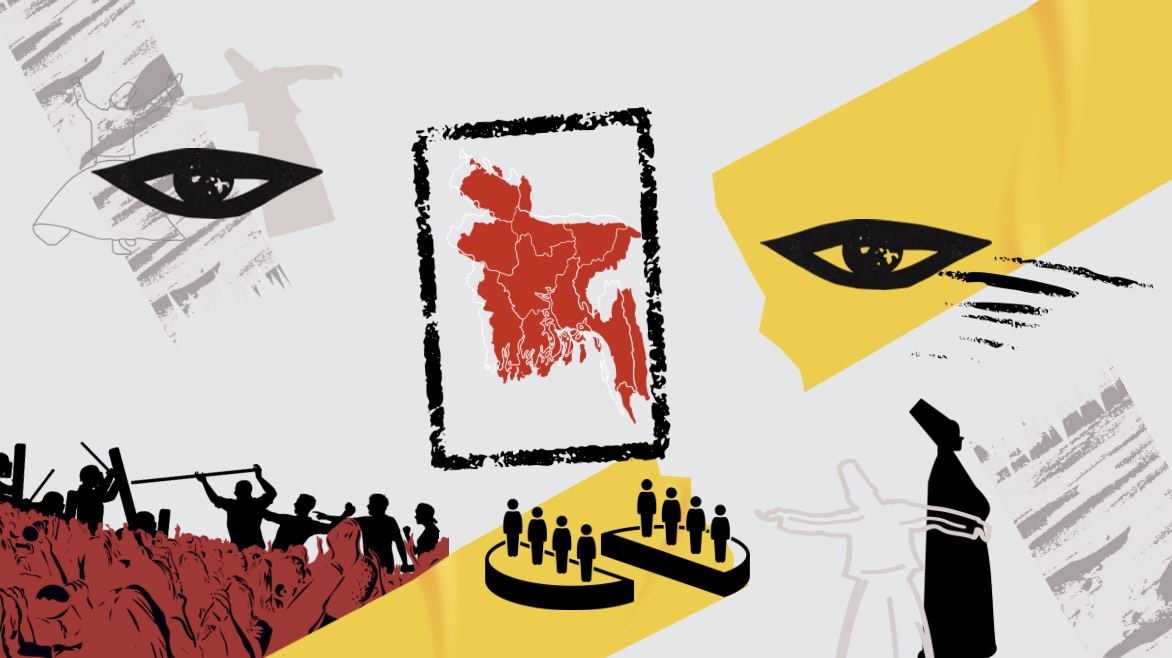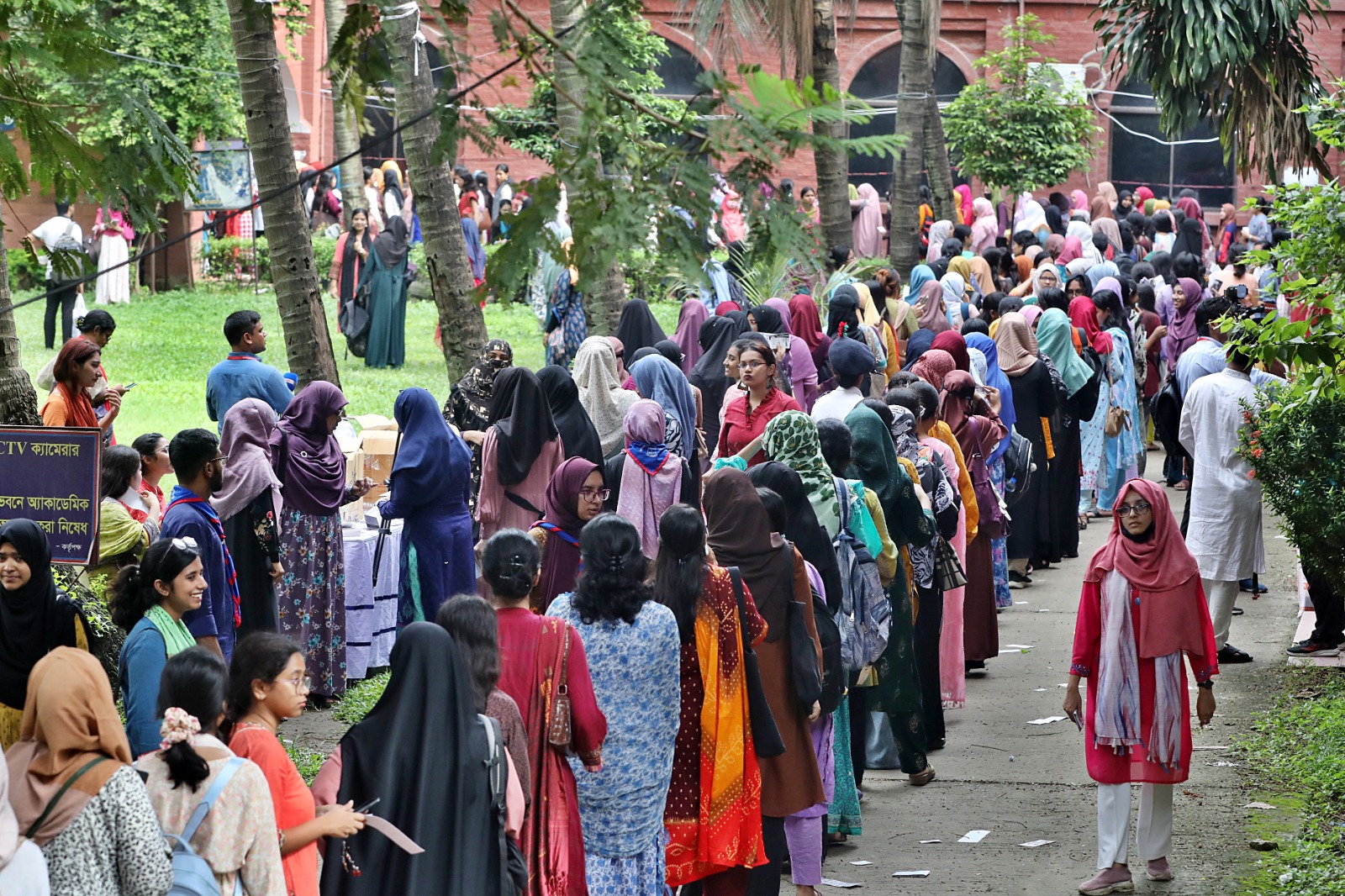Navigating pre-election tensions: A plea for common sense

With the frequently stated, and apparently unequivocal, commitment to a general election in early February 2026 in Bangladesh, the starting pistol has been fired for about six months of intense party campaigning that will no doubt include disputes over the rules of the game. One central battleground will be party manifestos—which, in recent UK elections, have become more important than before as accountability documents. The ruling Labour Party in the UK is currently trapped by imprudent manifesto commitments, especially on tax, made before the July 2024 election in order to win it.
The question is, will the manifestos of Bangladesh's political parties emerge as serious accountability documents, especially with so many parties competing, each trying to showcase its unique selling point? In the past, manifestos of some parties referenced their role in the Liberation War and nation-building struggles during the 1970s. Will that be the point of contestation this time too, or will parties shift their focus to the urgent challenges of addressing livelihood concerns and national aspirations, delivering concrete ideas about delivery? Of course, the memory of what happened over 50 years ago is baked into the nation's DNA, but the older generation need to accept that today's youth prioritise the future over the past. I was reminded of this by younger Bangladeshi colleagues over the years.
So, will this be the "moving on" election? If so, we should be seeing "moving on" manifestos, too. The trend of settling old scores about "who did what" decades ago should be seen as a distraction from the huge challenges facing any incoming government. After July 2024, I advocated for some version of a truth and reconciliation commission. Perhaps it is time to allow this to happen by default. I am not suggesting that clear cases of violence, abuse, and murder should be ignored. Definitely not. But there is a difference between pursuing political feuds and vengeance, and genuinely seeking rights and justice. Justice in the future will never be realised if the courts are overwhelmed, as they presently are, by spurious cases.
If the authors of such cases were genuinely concerned about people's livelihoods and aspirations, then they would draw a common-sense line and re-focus. The nation desperately needs to come together to face the future, rather than being trapped in the pursuit of short-term victories over opponents with whom they have, frankly, more in common than not. This is a plea for replacing factional intrigue with real, value-based thinking about what Bangladeshis need for a fulfilled future.
Take, for example, the finding of a recent study by the Power and Participation Research Centre (PPRC) that the national poverty stands at nearly 28 percent, with extreme poverty rising to 9.35 percent. One may dispute whether this is an actual rise or whether previous figures were over-optimistic (I tend to the latter view), but the PPRC figures must be seen as a jolt to our senses about inclusive development. We have long known that inequality has grown at a higher rate in Bangladesh than in any other Low- and Middle-Income Countries (LMICs) seeking exit from LDC status. These new poverty figures show that over a quarter of the population is being left behind, while a minority become super-rich by buying state favours and political leverage.
If a political party seeks legitimacy and credibility in the upcoming elections and afterwards, then it must confront the staggering reality that neither foreign aid nor economic growth (from a low base) has prevented the dangerous divergence between the rich and the poor over the last five decades. Of course, the population has simultaneously grown and much poverty has been alleviated, but we cannot rest on laurels. "Keeping up" is clearly not happening.
Manifestos should, therefore, be published well before election day, following a deadline set for all contenders by the Election Commission, with non-compliance resulting in exclusion from the contest. This way, manifestos become available for public debate and scrutiny. Parties, in their own interest, should make efforts to discuss and communicate their programmes widely, not simply rely on vote banks and manipulation, as has too often been the case across the 13 previous elections.
But accountability and public debate demand responsibility too. For social science academics, there can be many explanations for electoral violence, especially with the heightened tensions of zero-sum politics where the winner takes all. The stakes here are unreasonably high: full inclusion if victorious, full exclusion if not. Inclusion means access to the spoils of power, with exclusion its inverse. If parties wish to avoid the violent undermining of democratic legitimacy through muscle power, they should accept that national elections confer one set of powers, but other levels—upazila and union, for instance—also allocate authority, including to rival parties. That is pluralist democracy with checks and balances. We have seen what happens when full inclusion equals full exclusion in Bangladesh and elsewhere. That path easily leads to dictatorship; and students and ordinary citizens in July last year fought precisely to avoid such exclusionary politics with its fascist overtones. Bangladeshis are surely too wise to settle for that outcome again.
Avoiding the violence associated with exclusionary politics requires conceding space in order to have space oneself. It means resisting the short-term temptation of total control for the sake of long-term participation and relevance. Those in politics and activism need to step back and see the bigger picture rather than remain trapped in short-term factionalism. It is a little like the prisoner's dilemma where mutual distrust ensures that everyone ends up in a situation no one actually wants.
So if the nation seeks responsible governance to address the major challenges—whether related to inflation, banking, gender and minority discrimination, poverty, skill shortages, climate change, global competitiveness, river pollution, youth opportunity, sustainable housing, renewable energy, food security, the political consequences of feudo-capitalism, tax evasion or corruption—then all sides must cut each other some slack, avoid petty battles, and acknowledge that one's freedom is tied to others' freedom, and one's well-being is meaningful only if shared.
Only then will Bangladesh have a chance to arrive where everyone wants to be, by optimising for the long term rather than maximising short-term advantage.
Dr Geof Wood is a development anthropologist and author of several books and numerous journal articles. He is also emeritus professor of international development at the University of Bath, UK.
Views expressed in this article are the author's own.
Follow The Daily Star Opinion on Facebook for the latest opinions, commentaries and analyses by experts and professionals. To contribute your article or letter to The Daily Star Opinion, see our guidelines for submission.




 For all latest news, follow The Daily Star's Google News channel.
For all latest news, follow The Daily Star's Google News channel. 


Comments